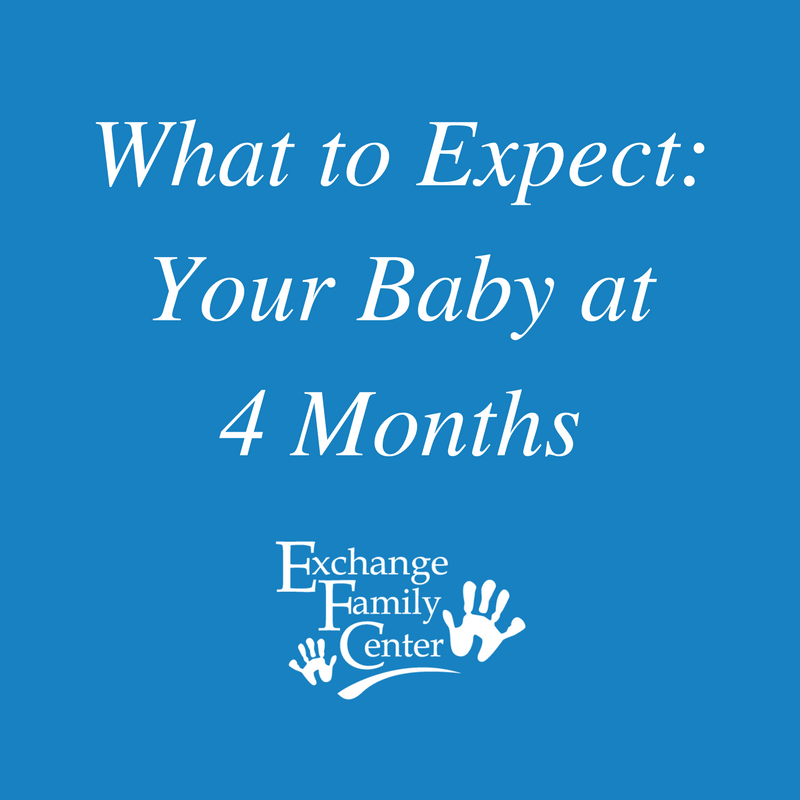Many parents have questions about their child’s development. It’s a good idea for parents to look for certain signs that their child is meeting developmental milestones that experts see in typical children of a certain age.
The following is a checklist of some behavioral milestones experts expect to see a baby reach by the end of 4 months. This checklist is a good starting point to use when you take your child in for his or her next check-up with a healthcare provider.
What most babies do by this age:
Social and Emotional:
Smiles spontaneously, especially at people
Likes to play with people and might cry when playing stops
Copies some movements and facial expressions, like smiling or frowning
Language and Communication:
Begins to babble
Babbles with expression and copies sounds he hears
Cries in different ways to show hunger, pain, or being tired
Cognitive (learning, thinking, problem-solving):
Lets you know if he is happy or sad
Responds to affection
Reaches for toy with one hand
Uses hands and eyes together, such as seeing a toy and reaching for it
Follows moving things with eyes from side to side
Watches faces closely
Recognizes familiar people and things at a distance
Movement and Physical Development:
Holds head steady, unsupported
Pushes down on legs when feet are on a hard surface
May be able to roll over from tummy to back
Can hold a toy and shake it and swing at dangling toys
Brings hands to mouth
When lying on stomach, pushes up to elbows
It’s important to know that while there are variations in child development, certain behaviors, or a lack of certain behaviors, may indicate meaningful developmental delays that parents and caregivers will want to address.
Act Early by talking to your child’s doctor, if your child:
Doesn’t watch things as they move
Doesn’t smile at people
Can’t hold head steady
Doesn’t coo or make sounds
Doesn’t bring things to mouth
Doesn’t push down with legs when feet are placed on a hard surface
Has trouble moving one or both eyes in all directions
Talk to your child’s doctor or nurse practitioner if you notice any of these signs of possible developmental delay for this age. You may also benefit from talking with someone familiar with the available services for young children in your local area, such as your state’s public early intervention program. For more information, visit the CDC's “If You’re Concerned” webpage or call 1-800-CDC-INFO.
The American Academy of Pediatrics recommends that children be screened for general development using standardized, validated tools at 9, 18, and 24 or 30 months and for autism at 18 and 24 months or whenever a parent or provider has a concern. Ask your child’s doctor about your child’s developmental screening.
This parenting tip blog post has been adapted from resources available through the Center for Disease Control (CDC). Explore their website for further information and more detailed checklists about child development.
And check out the resources available through the Exchange Family Center for parents and caregivers. We’ll be continuing this deep dive into important child development milestones in upcoming posts. So stay tuned!

